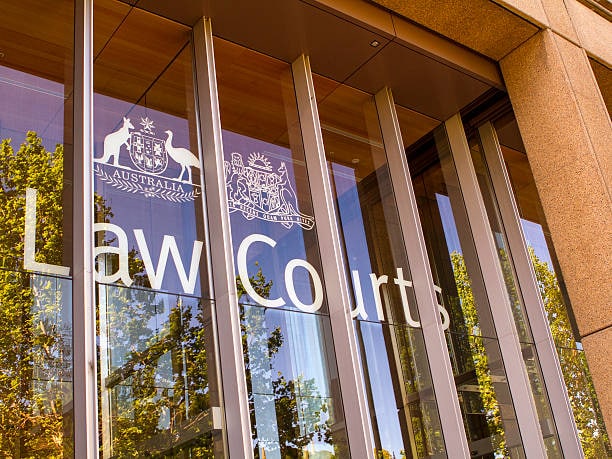The NSW court hierarchy is a structured system that organises various courts based on their jurisdiction and functions within the legal framework of the state. This hierarchical arrangement ensures an efficient and organised dispensation of justice. The NSW court system is broadly categorised into two main branches:
- the higher courts, and
- the lower courts.
In this article, we will explore the NSW court hierarchy.
NSW Court Hierarchy: Higher Courts
At the apex of the hierarchy are the Higher Courts, which include the Supreme Court of New South Wales. The Supreme Court is the highest court in the state and has both appellate and original jurisdiction.
Furthermore, the Supreme Court is divided into three main divisions:
- Common Law Division
- Equity Division
- Court of Criminal Appeal
The Common Law Division deals with civil matters, administrative matters and criminal matters. These include civl matters such as:
- breach of contract
- possession of land
- claims for damages of personal injury
- defamation etc
It also includes criminal matters such as:
- attempted murder
- manslaughter and murder
- drug related charges etc
Furthermore, the Equity Division focuses on probate, equity, protective and commercial matter
The Court of Criminal Appeal handles criminal appeals an is the state’s highest court for criminal matters. A person can appeal to the Court of Criminal Appeal if a Supreme Court or District Court judge has sentenced them. Note that parties may also bring appeals from decisions of the Land and Environment Court in its criminal jurisdiction.
NSW Court of Appeal
The Court of Appeal is the final court of appeal in the state. This is an intermediate appellate court that has both appellate and supervisory jurisdiction.

District Court of NSW
The District Court of New South Wales has jurisdiction over more serious criminal and civil matters. Criminal cases involving indictable offences and civil cases with higher monetary values are usually heard in the District Court. Judges in this court have the authority to conduct trials by jury.
Below the District Court is the Local Court, which is one of the busiest courts in the hierarchy. It handles a wide range of matters, including criminal cases involving less serious offences, civil cases with lower monetary values, and various regulatory and administrative matters. The Local Court is decentralised, with numerous local courts spread across the state.
Additionally, within the Local Court, there are specialised divisions such as the Children’s Court, which deals exclusively with matters involving young offenders.
It’s important to note that the NSW court hierarchy is not limited to the outlined courts. There are also various tribunals and administrative bodies that play a crucial role in the legal system. These include the NSW Civil and Administrative Tribunal (NCAT), which consolidates many jurisdictional areas, such as tenancy disputes and administrative law matters.
Commonwealth Hierarchy of Courts
Since we have explored NSW court hierarchy, let’s also consider the hierarchy of courts in Australia. There are three levels of federal courts:
- High court
- Federal court
- Division 2 of the Federal Circuit and Family Court of Australia

Importance of Seeking Legal Advice
Seeking legal advice is crucial in navigating the complexities of the legal system and ensuring that individuals and entities make informed decisions. The importance of seeking legal advice extends across various aspects of life, from personal matters to business dealings. Here are key reasons why consulting with a legal professional is essential:
Laws are intricate and can vary based on jurisdictions and circumstances. A legal professional can interpret the law in relation to a specific situation, offering clarity on the legal landscape and guiding individuals on their rights and responsibilities.
Furthermore, legal advice helps in risk mitigation. By consulting with an attorney, individuals can identify potential legal risks associated with their actions or decisions.
Additionally, legal advice is indispensable in dispute resolution. In the event of a conflict or disagreement, a lawyer can provide guidance on the best course of action, whether it involves negotiation, mediation, or pursuing legal action. This strategic counsel can significantly impact the outcome of a dispute and contribute to a swifter resolution.
Moreover, legal advice is essential when drafting or reviewing legal documents. Whether it’s a contract, agreement, or any other legal document, having a legal professional scrutinise the content ensures that it is legally sound, protects the interests of the parties involved, and complies with relevant laws and regulations.
In the business realm, legal advice is fundamental for compliance. Navigating the complex web of business laws and regulations demands the expertise of a legal professional. Compliance not only safeguards the business from legal repercussions but also enhances its reputation and sustainability.
Legal professionals bring expertise and knowledge to the table, offering invaluable guidance that can have a lasting impact on the legal well-being of individuals and businesses alike. For more information, contact our team.
